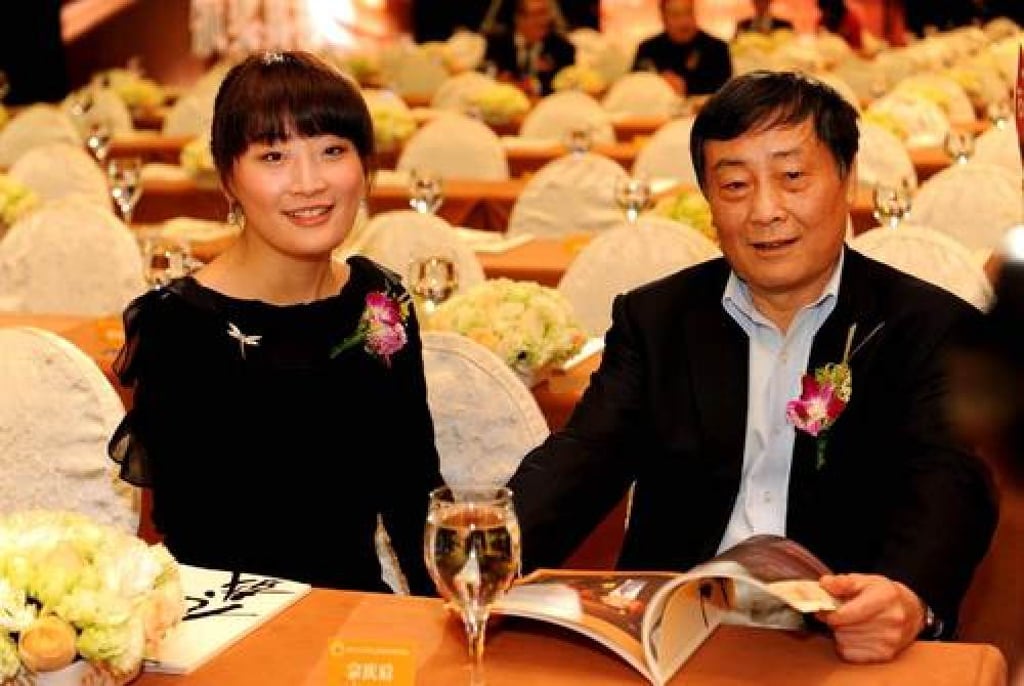Wahaha heiress Kelly Zong Fuli back steering Chinese drinks giant after ‘shock’ quit move

An SOE run by the Shangcheng district government of Hangzhou, the city in Zhejiang province where the firm is headquartered, remains the largest stakeholder.
The management and personnel reshuffle at Wahaha, a household soft drink brand in China, was closely watched as it involved the succession of the so-called second-generation rich among China’s privately owned companies.
The changes were triggered after the elder Zong died in February, having handed the baton to his only child.
Her resignation in July sparked widespread speculation after she cited shareholders’ “lack of trust” in her leadership and differing views about Wahaha’s growth path that could not be resolved.
Rumours about a boardroom tussle as well as state capital gobbling up Wahaha and turfing out the heiress were soon rife.
Today, she wears two more hats at Wahaha, as its legal representative and president, positions she did not hold in July.

According to an assistant professor at the Zhejiang University of Finance and Economics, “the younger Zong’s sudden, high-profile resignation in July was a shock at a very sensitive juncture as Zhejiang implemented the central authorities’ pro-business mandate to shore up the confidence of the private sector”.
“The swirling rumours that characterised the resignation as a ‘protest resignation’ put Zhejiang, known for its vibrant private economy, in a very bad light as everyone in China knows Wahaha,” said the professor, who declined to be named as he was not authorised to speak to the media.
Hangzhou and Zhejiang officials might have stepped in and brokered a deal to retain the heiress, he added.
But while the 42-year-old is now formally running the multibillion dollar business empire inherited from her father, she still owns only 29.4 per cent of Wahaha shares.
To make major boardroom decisions, she will need to rely on the 24.6 per cent voting power from a stockholding party collectively formed by Wahaha employees, whereas the Shangcheng-controlled SOE owns a 46 per cent stake.
The general manager of the SOE, whose business focuses on culture and tourism, sits on the Wahaha board. The chair of Wahaha’s supervisory board is also an official with the Shangcheng district finance bureau, according to the drinks giant’s updated management and shareholders information.
In March, Kelly Zong told local government mouthpiece Zhejiang Daily that the province’s pro-business policies and support for the private economy had injected strong confidence and vitality into Wahaha.
“We now have the courage to develop, reform and expand the business and contribute back to the nation,” she was quoted as saying.
The international business graduate from Pepperdine University in California started her career at one of Wahaha’s factories as her father began to prepare her to take over more management responsibilities.
Wahaha, which means “laughing child” in Chinese, was founded by the elder Zong in 1987.
The Zong family is worth US$13.1 billion and was ranked 31st on China’s rich list last year, according to the Hurun Research Institute.
The Zongs would top China’s rich lists in the early 2010s but slipped down the ranks as Wahaha lost market share to rivals like Nongfu Spring and foreign brands, amid a slow business transition to cater to younger customers and as e-commerce nibbled away at sales made through traditional channels.
Source link



